Web3 or blockchain domains are decentralized, digital domains that exist on a blockchain ledger. Unlike traditional domain names, which are stored and controlled in centralized databases managed by registrars such as.COM or .NET, Web3 domain names are stored and maintained on public blockchains like Ethereum and EOS.
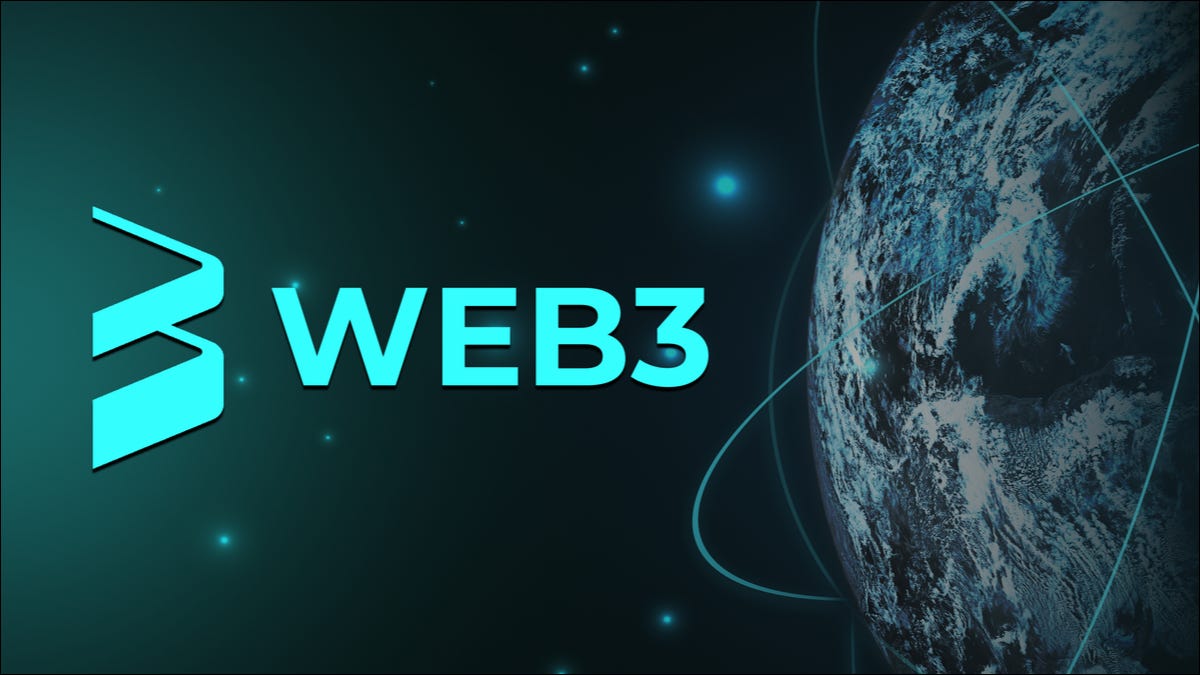
In addition to being decentralized, Web3 domains are secured by cryptography which makes them secure from censorship or manipulation. This also makes it difficult for a third party to track and record activity associated with the domain.
Why Are Web3 or Blockchain Domains Necessary?
Web3 or blockchain domains provide a number of benefits and advantages over traditional domain names. The most notable is that they are fully decentralized, meaning that they are not subject to the control and censorship of any single entity such as a registrar. This can be especially helpful in countries where access to certain websites may be restricted or blocked, as it is much harder for governments or other organizations to censor a blockchain domain.
Web3 domains provide a high level of security, as the content and ownership cannot be changed without consent from the domain owner. This means that your data is far less exposed to cyberattacks or any malicious attempts than with traditional websites. Moreover, Web3 domains can also act as digital wallets for crypto transactions.
1. Freename.io – Custom Web3 TLDs and Domains
Freename.io is the leading provider of Web3 domain and TLD (top-level domains) registries. The platform allows users to register their own custom top-level domains, such as .coin or .eth, as well as purchase digital assets that can be used for website development, hosting services, and other online activities.
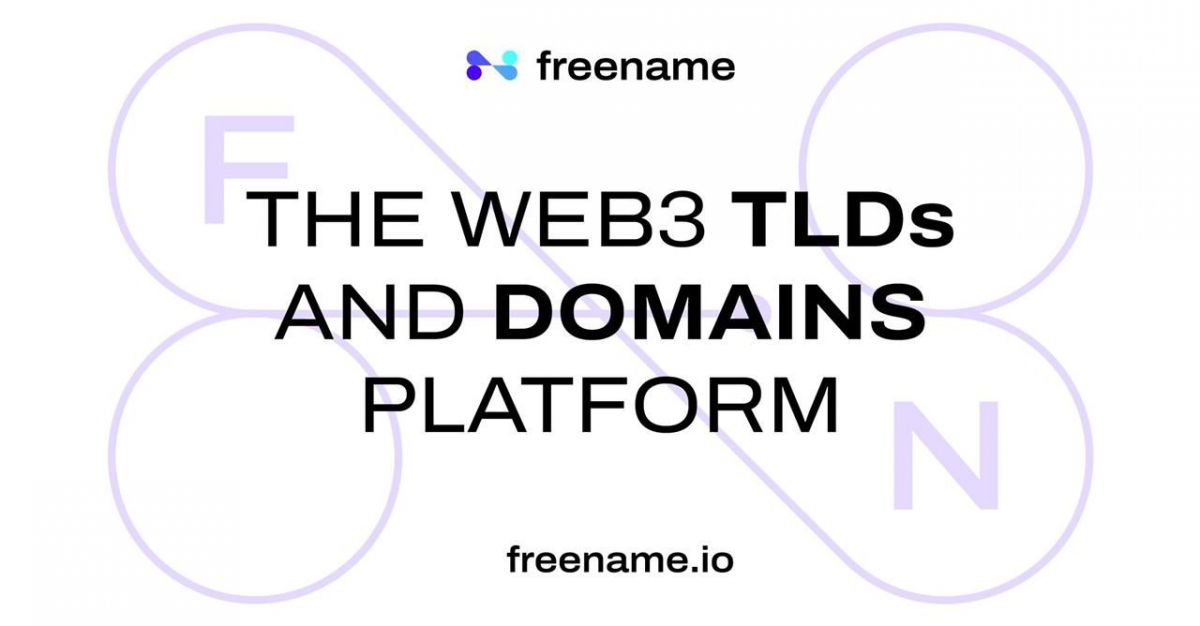
The company is based in Switzerland and the platform supports multiple blockchain networks starting with Aurora, Binance Smart Chain (BSC), Cronos, and Polygon, with support for other ecosystems coming in the near future, including Avalanche, Ethereum, and Solana. Furthermore, Freename has its own library to help Web3 developers to easily support multiple Web3 Domain Providers. This library standardizes interfaces for interaction enabling to resolve and manage these supported providers: Freename, Unstoppable Domains, and ENS.
Freename has a strong focus on user privacy and offers support for multiple blockchain networks, including Aurora, Binance Smart Chain (BSC), Cronos, Polygon, and more. Additionally, Freename has its library to enable developers to easily interact with supported domain providers like Unstoppable Domains and ENS.
Freename.io is currently the only platform that allows users to register domain names on multiple blockchains, including Ethereum, EOS, and Bitcoin Cash.
2. Unstoppable Domains – Decentralised Domain Name System
Unstoppable Domains is a decentralized Domain Name System (DNS) that provides users with the ability to register blockchain domain names on the Ethereum and Binance Smart Chain (BSC) networks. The platform enables users to register domain names that can be used for website development, hosting services, and other online activities.
Furthermore, Unstoppable Domains also provides users with the ability to store cryptocurrency addresses in a wallet on their domain.

Unstoppable Domains has an intuitive user interface and allows people to easily connect to various websites, such as GitHub, Twitter, and Discord accounts. Additionally, Unstoppable Domains enables users to view their domain portfolio and make payments using cryptocurrency.
3. Ethereum Name Service (.eth) – the traditional service
Ethereum Name Service (ENS) is the traditional name and address service for Ethereum. It’s designed to make it easier for users to securely send funds, receive payments, and interact with smart contracts on the Ethereum blockchain.
ENS works by assigning a unique Ethereum address to an easy-to-remember name, such as “Bob”. With ENS, there’s no need to remember a long, complicated Ethereum address.
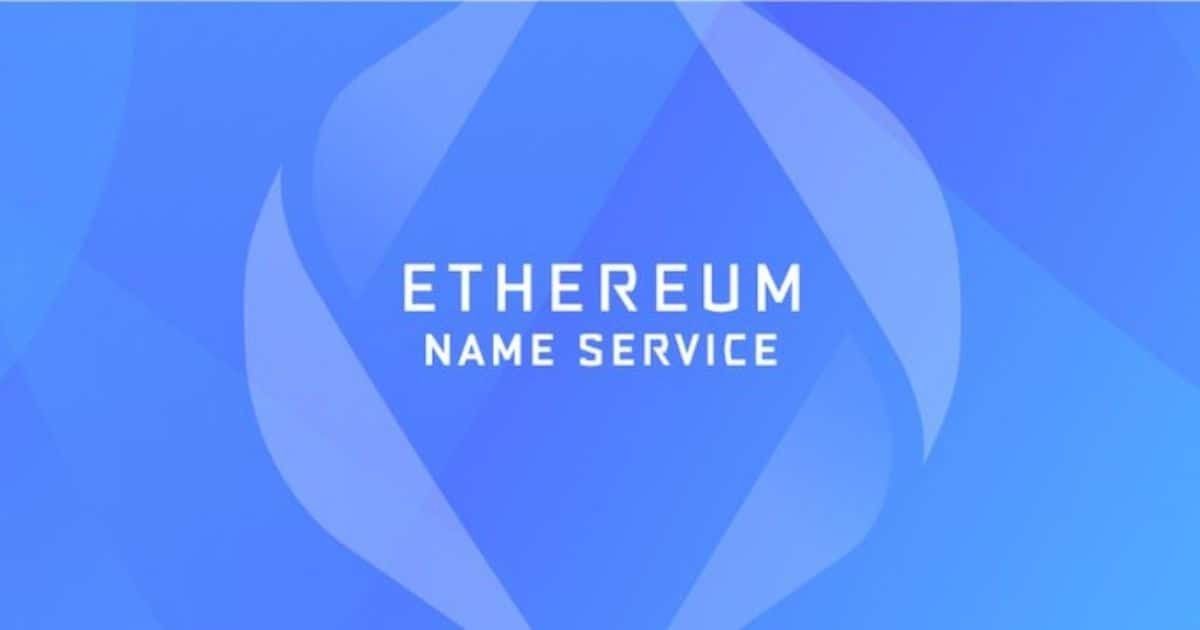
The Ethereum Name Service (ENS) is the traditional service provider for Web3 domain registration. It’s a distributed, secure registry that enables users to purchase and manage digital identifiers using the Ethereum network. Users can use ENS to register their own custom domains such as .eth, .xyz, and others. As well as store cryptocurrency addresses in a wallet on their domain.
The ENS platform also allows users to view and manage their domain portfolio and make payments using cryptocurrency. Additionally, the platform provides support for various blockchain networks such as Ethereum, Binance Smart Chain (BSC), Klaytn, Fantom, and others.
4. Bonfida – Solana Name Service
Bonfida is a Solana Name Service (SNS) provider. It allows users to register and manage digital identifiers using the Solana blockchain network. The platform enables users to purchase .sol domains, which can be used for website development, hosting services, and other online activities.
Bonfida has an intuitive user interface and allows users to easily connect to a variety of websites, such as GitHub, Twitter, and Discord accounts. Additionally, Bonfida provides users with access to their domain portfolio and the ability to make payments using cryptocurrency.

Bonfida also provides users with the ability to tokenize their domain and sell them as NFTs in some of Solana’s most popular marketplaces, all in a peer-to-peer fashion. Further, it allows users to send and receive payments using their Twitter handles associated with Solana addresses. This
Bonfida also offers an intuitive user interface, allowing users to easily view their domain portfolio and make payments using Solana tokens. Furthermore, the platform provides support for other blockchain networks such as Ethereum, Binance Smart Chain (BSC), Avalanche, and more.
5. PeerName
PeerName is a Bitcoin Name Service (BNS) provider. It allows users to register and manage digital identifiers using the Bitcoin blockchain network. The platform enables users to purchase .bit domains, which can be used for website development, hosting services, and other online activities.
PeerName has an intuitive user interface and allows users to connect easily to a variety of websites, such as GitHub, Twitter, and Discord accounts. Additionally, PeerName provides users with access to their domain portfolio and the ability to make payments using cryptocurrency.

PeerName also provides users with the ability to tokenize their domain and sell them as NFTs in some of the most popular marketplaces, all in a peer-to-peer fashion. Further, it allows users to send and receive payments using their Twitter handles associated with Bitcoin addresses. This makes it easier for people to securely transact without having to rely on third parties or centralized services. Furthermore, PeerName offers support for other blockchain networks such as Ethereum, Binance Smart Chain (BSC), Avalanche, and more.
6. Namecoin’s Dot-Bit
Namecoin is a cryptocurrency that uses the Bitcoin blockchain to provide users with a decentralized, secure DNS service. The platform allows users to register and manage domain names using its Dot-Bit protocol.
The Dot-Bit protocol enables users to securely store and transfer data, including website addresses and other digital identifiers. It also provides users with access to their domain portfolio and the ability to make payments using Namecoin tokens.
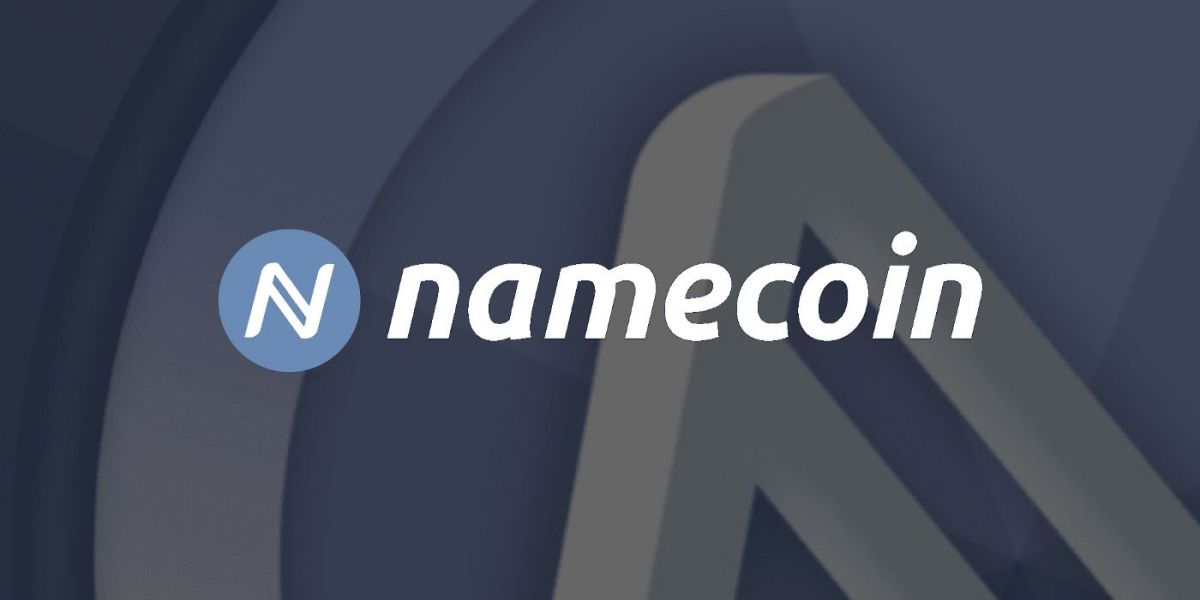
Namecoin’s Dot-Bit protocol also provides users with the ability to tokenize their domain and sell them as NFTs in some of the most popular marketplaces, all in a peer-to-peer fashion. Additionally, it allows users to send and receive payments using their Twitter handles associated with Namecoin addresses. This makes it easier for people to securely transact without having to rely on third parties or centralized services. Furthermore, the platform provides support for other blockchain networks such as Ethereum, Binance Smart Chain (BSC), Avalanche, and more.
Namecoin is also a platform where users can earn rewards by contributing to the Namecoin network. This incentivizes people to become active participants in the Namecoin community and helps secure the network. All in all, Namecoin’s Dot-Bit protocol provides a secure and decentralized solution for registering digital identifiers. It is an ideal choice for those who value their privacy, security, and freedom.
7. Blockstack
Blockstack is a platform for decentralized applications (dApps). It uses the Bitcoin blockchain to provide users with a secure and decentralized infrastructure for building dApps.
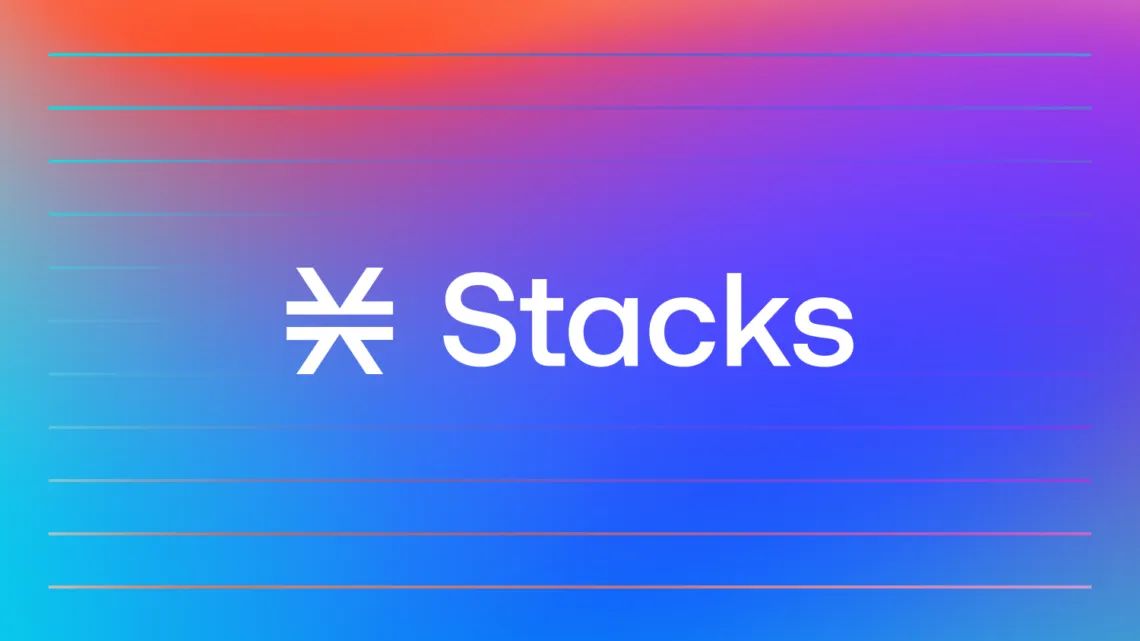
The Blockstack platform allows users to register and manage digital identifiers using its Stacks 2.0 protocol. This enables users to create their domains, websites, and other online services that are wholly owned and managed by the owner.
Blockstack also provides users with access to their domain portfolio and the ability to make payments using cryptocurrency. Additionally, it allows users to tokenize their domain and sell them as NFTs in some of the most popular marketplaces, all in a peer-to-peer fashion.
The platform also provides users with the ability to send and receive payments using their Twitter handles associated with Bitcoin addresses. This makes it easier for people to securely transact without having to rely on third parties or centralized services. Furthermore, Blockstack supports other blockchain networks such as Ethereum, Binance Smart Chain (BSC), Avalanche, and more.
Overall, Blockstack is an ideal platform for users who want to create secure and decentralized applications without having to worry about centralized service providers. With its Stacks 2.0 protocol, it provides a secure and reliable way of registering digital identifiers in a decentralized manner. This makes it an optimal choice for those who value their privacy, security, and freedom.
8. Quik.com
Quik is a decentralized financial platform with its own native token, QUK. It uses the Ethereum blockchain to provide users with access to a variety of financial services, including lending, trading, and more.

The Quik protocol enables users to securely store and transfer digital assets using its native token, QUK. It also provides users with access to their portfolio and the ability to make payments using QUK tokens.
In addition, Quik allows users to tokenize their domain and sell them as NFTs in some of the most popular marketplaces, all in a peer-to-peer fashion. Furthermore, it provides users with the ability to send and receive payments using their Twitter handles associated with Ethereum addresses. This makes it easier for people to securely transact without having to rely on third parties or centralized services.
Quik also has at least 10 NFT domain TLDs available, ending in .metaverse, .vr, .chain, .address, .io, .bored, .doge, .shib, and more. These can be bought only via cryptocurrencies, including BTC, ETH, BNB, and QUIK. However, these domains are not compatible with traditional DNS systems. They only hold value within the Web 3 ecosystem.
Quik also provides users with the ability to tokenize their assets and sell them as NFTs in some of the most popular marketplaces, all in a peer-to-peer fashion. Additionally, it allows users to send and receive payments using their Twitter handles associated with Ethereum addresses. This makes it easier for people to securely transact without having to rely on third parties or centralized services. Furthermore, the platform supports other blockchain networks such as Binance Smart Chain (BSC), Avalanche, and more.
9. Emercoin
Emercoin is a blockchain-based platform that enables users to securely store digital assets, such as web domains and user identities, in an immutable and unalterable manner. It uses the Emercoin protocol to provide a distributed peer-to-peer network for secure transactions with no central authority or intermediary.
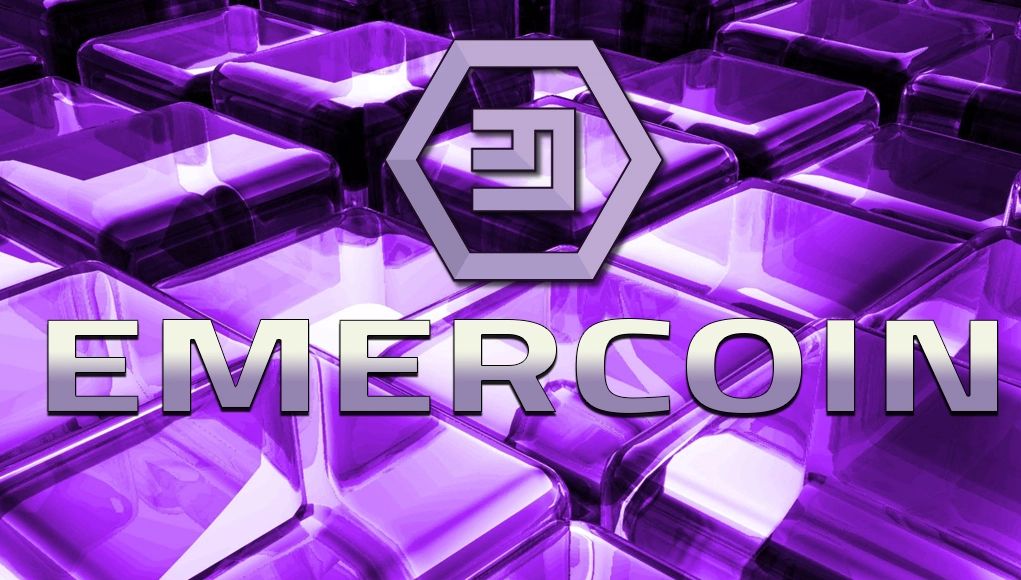
The platform also allows users to register, renew, and transfer domain names using its native EMC token. Furthermore, Emercoin provides users with the ability to tokenize their assets and sell them as NFTs in some of the most popular marketplaces, all in a peer-to-peer fashion.
In addition, Emercoin supports many other blockchain networks such as Bitcoin, Ethereum, Dash, and Litecoin. It also allows users to send and receive payments using their Twitter handles associated with Bitcoin addresses. This makes it easier for people to securely transact without having to rely on third parties or centralized services.
Emercoin’s DNS is called EmerDNS, which creates censorship-resistant domain names that cannot be revoked nor altered by any centralised institution or authority. Users have control of their private keys and the associated payment addresses. This makes it an optimal choice for those who value their privacy, security, and freedom. Furthermore, Emercoin provides users with the ability to tokenize their assets and sell them as NFTs in some of the most popular marketplaces, all in a peer-to-peer fashion.
10. NEM Blockchain DNS (NEMDNS)
The NEM Blockchain DNS (NEMDNS) is a distributed ledger system used to securely store and transfer digital asset information. It provides users with the ability to register, renew, and transfer domain names using its native XEM token. Furthermore, it allows users to send and receive payments using their Twitter handles associated with XEM addresses. This makes it easier for people to securely transact without having to rely on third parties or centralized services.

In addition, NEMDNS allows users to tokenize their assets and sell them as NFTs in some of the most popular marketplaces, all in a peer-to-peer fashion. Furthermore, it provides users with the ability to register domain names in any of the existing NEM TLDs, such as .luxe, .art, .music, .name, and more.
The platform also supports a range of other blockchain networks such as Bitcoin, Ethereum Classic (ETC), Litecoin (LTC), Dash (DASH), and more. This makes NEMDNS an ideal choice for storing large amounts of data securely, in an immutable and unalterable manner. Furthermore, it is built with an encryption algorithm that provides users with total control over their private keys and associated payment addresses. This ensures that no one else can access or alter your information without your permission.
Overall, NEMDNS is a powerful and reliable platform that enables users to securely store and share digital asset information on the blockchain. It provides users with an easy-to-use interface as well as complete control over their data, making it ideal for those who value privacy, security, and freedom.
Pros and Cons
In 2023, web3 domain name registries and platforms will be more widely used than ever before. These new technologies offer numerous advantages over traditional domain name registration systems. Some of these benefits include:
Pros:
• Increased security – With blockchain-based infrastructure, users can feel assured that their data and information is securely stored and accessible.
• Increased privacy – By using zero-knowledge proofs and other advanced technologies, users can remain anonymous when registering or managing their domain names.
• Reduced costs – The complex infrastructure of web3 registries and platforms eliminates the need for expensive middleman services, resulting in reduced costs for users.
• Improved accessibility – Web3 domains allow anyone to register a domain name, regardless of geographic location or economic standing.
• Faster transaction times – By relying on a decentralized infrastructure, users can process transactions quickly and efficiently with no need for intermediaries.
Cons:
• Lack of regulation – As web3 technology is relatively new, it is not currently subject to the same regulatory frameworks applied to traditional domain registration services.
• Potential for misuse – With increased anonymity comes the potential for malicious actors to take advantage of the system and use it for fraudulent purposes.
• Complexity – The complexity of blockchain technology can be daunting for beginners, making web3 domains more difficult to manage than traditional ones.
• Limited functionality – Although web3 domain names offer the same basic functionalities as traditional ones, they lack in certain areas such as support for advanced features.
Overall, web3 registries and platforms are expected to become increasingly commonplace in 2023. While there are various advantages associated with this technology, it is also important to remember that there are potential risks and drawbacks that should be taken into consideration. With the right measures in place, web3 domains can provide an efficient and secure way for users to manage their domain names.
FAQs
What is a Web3 domain registry?
A Web3 domain registry is a decentralized domain name system that allows users to register, renew, transfer and manage blockchain-based domain names. This type of registration system has been around since the early days of blockchain technology, but with the evolution of Web3, these registries have become more secure and reliable.
What are some of the top Web3 domain registries?
The Web3 domain registries that are gaining traction and becoming more popular include ENS (Ethereum Name Service), Unstoppable Domains, Handshake, Zilliqa, and Almond. Each of these services provides a different take on registering and managing domains in the blockchain space.
What are the benefits of using a Web3 domain registry?
Using a Web3 domain registry can provide several benefits for users, including:
-Secure and reliable domain registration that is decentralized and resistant to censorship. This means that no one can block or take down your registered domains without your consent.
-A global marketplace for buying, selling, transferring and trading domains in an environment that is free from manipulation and fraud.
-The ability to register domains with no middlemen or intermediaries, eliminating the need for a third party to process payments and registrations.
-Lower registration fees compared to traditional registrars.
-A better user experience thanks to features such as integrated wallets, domain management tools, and analytics.
-The ability to receive payments in cryptocurrency or fiat currency directly from buyers.
-Increased privacy and security thanks to blockchain technology that provides increased transparency and accountability.
How do I choose a Web3 domain registry?
When selecting a Web3 domain registry, it is important to consider factors such as the platform’s security, the service levels offered by the provider, and the registration cost. Security should be top priority when selecting a Web3 domain registry, as many registries are vulnerable to malicious attacks. Service offerings should also be considered, as some registries may offer more features, such as DNS hosting and on-chain management services. Lastly, the cost of registration can vary significantly between different providers and should be compared in order to get the best deal for your needs. With these factors in mind, you can choose a Web3 domain registry that is both secure and cost-effective.
Conclusion
Web3-based blockchain networks are the future of digital asset management and ownership. Whether you’re looking for a way to securely store, transfer, or tokenize your assets, there is a blockchain platform that can meet your needs. From platforms like Ethereum and EOS which provide full-featured smart contract capabilities to more specialized networks such as Emercoin and NEMDNS that focus on domain name registration and asset tokenization, there is a blockchain platform for everyone.
Related articles
Read More: mpost.io

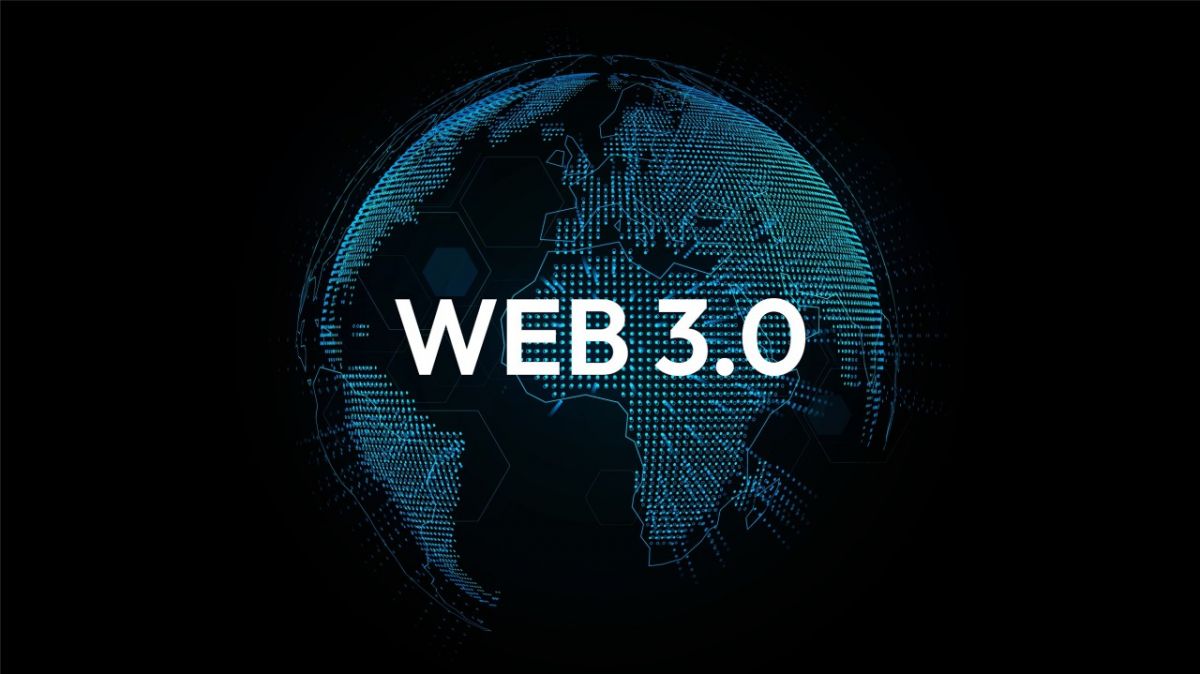


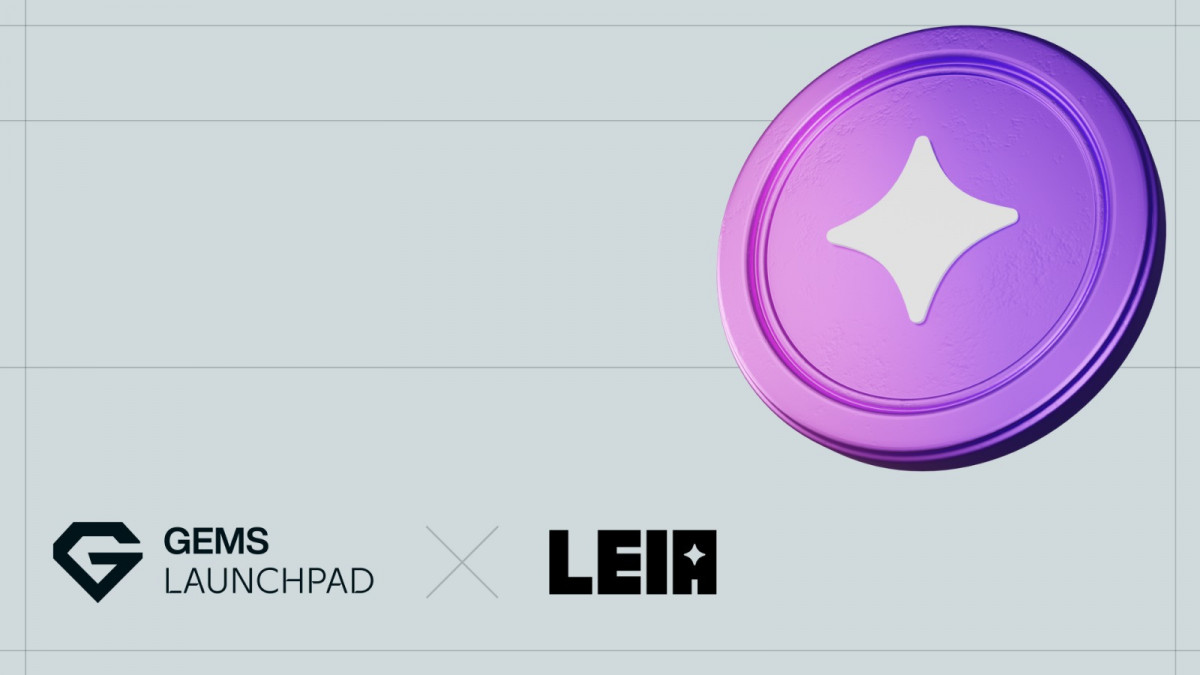




 Bitcoin
Bitcoin  Ethereum
Ethereum  Tether
Tether  XRP
XRP  Solana
Solana  Dogecoin
Dogecoin  USDC
USDC  Cardano
Cardano  Lido Staked Ether
Lido Staked Ether  TRON
TRON  Avalanche
Avalanche  Wrapped stETH
Wrapped stETH  Sui
Sui  Toncoin
Toncoin  Chainlink
Chainlink  Wrapped Bitcoin
Wrapped Bitcoin  Shiba Inu
Shiba Inu  Stellar
Stellar  Hedera
Hedera  Polkadot
Polkadot  WETH
WETH  Bitcoin Cash
Bitcoin Cash  LEO Token
LEO Token  Uniswap
Uniswap  Litecoin
Litecoin  Pepe
Pepe  Hyperliquid
Hyperliquid  Wrapped eETH
Wrapped eETH  Ethena USDe
Ethena USDe  NEAR Protocol
NEAR Protocol  USDS
USDS  Internet Computer
Internet Computer  Aptos
Aptos  Aave
Aave  Mantle
Mantle  Cronos
Cronos  POL (ex-MATIC)
POL (ex-MATIC)  Render
Render  Ethereum Classic
Ethereum Classic  MANTRA
MANTRA  Bittensor
Bittensor  Monero
Monero  WhiteBIT Coin
WhiteBIT Coin  Tokenize Xchange
Tokenize Xchange  Dai
Dai  Virtuals Protocol
Virtuals Protocol  Artificial Superintelligence Alliance
Artificial Superintelligence Alliance